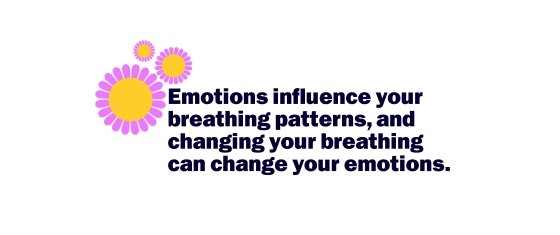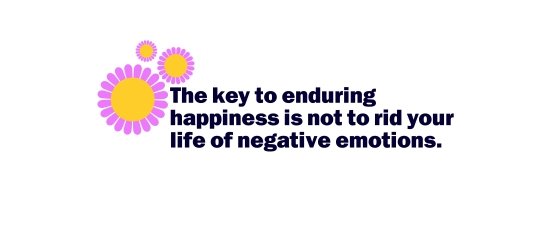MCC Nepal Signing Ceremony with Nepal Government
Millennium Challenge Corporation Signing Ceremony with Nepal Deputy Secretary of State John Sullivan attends the Millennium Challenge Corporation Signing Ceremony with Nepal, at the Department of State on September 14,…
Read moreFor Better Well-Being, Just Breathe
For Better Well-Being, Just Breathe
I was a graduate student in Manhattan having breakfast on my rooftop on Sept. 11, 2001, when I witnessed planes demolish the Twin Towers. For months afterward, I shook with anxiety every morning. Unwilling to medicate, I tried everything else. Mindfulness meditation induced panic attacks. Hot yoga built muscle but did nothing for my anxiety. I went to talks by Buddhist monks and meditation teachers hoping to attain inner peace, to no avail. Finally, I attended a SKY Breath Meditation class, which involves a 20-minute breathing regimen in different postures and rhythms. Though I went in skeptical, I came out calm. Two decades later, I haven’t missed a day of my breathing practice, not even when I gave birth.
[time-brightcove not-tgx=”true”]
I’ve also devoted part of my research career to studying the benefits of breathing for mental health and well-being. Seven years after 9/11, I was working with veterans returning from war with posttraumatic stress disorder (PTSD). Traditional treatments had failed many of them, so my colleagues and I ran a randomized controlled trial to test the effects of SKY breathing (which the nonprofit Art of Living Foundation teaches to the general public and Project Welcome Home Troops offers to veterans and military). Compared with the control group, veterans practicing SKY every day for one week saw their anxiety drop to levels typical of the general population. Even though most did not continue to practice, they maintained the benefits a year later. In fact, many veterans in our study no longer qualified as having PTSD. A larger study at the Palo Alto, Calif., veterans hospital found that SKY had similar benefits to cognitive processing therapy, the current gold-standard PTSD treatment. Veterans who practiced SKY also showed more physiological improvements than those who just had therapy. For people who don’t want to revisit or discuss painful memories, or devote the time and costs necessary for therapy, breathing practices are a nice alternative.
Emotions influence your breathing patterns, and changing your breathing can change your emotions. For example, anxiety and anger correspond to an irregular, short, fast breath. Adopting the slower and more regular breathing pattern that corresponds to a calm feeling signals relaxation by activating the vagus nerve, slowing heart rate, easing blood pressure, and settling you down. A simple exercise you can try is to close your eyes and breathe out for twice as long as you breathe in. Do this for five minutes in the morning, before a stressful meeting, or as you transition from work to home.
Breathing holds up compared with other reputable well-being practices. In a 2020 randomized controlled trial, my Yale colleagues and I assigned stressed undergraduates to either a control group, a group that practiced SKY breathing, one that did mindfulness meditation, or one that learned skills to improve emotional intelligence. SKY showed more statistically significant benefits for mental health and well-being than the other interventions. Perhaps that’s because breathing is not mainly a self-awareness practice—it actively relaxes your physiological state.
Seppälä is a faculty member at the Yale School of Management and author of The Happiness Track
Emotions influence your breathing patterns, and changing your breathing can change your emotions.
Uncategorized, healthscienceclimate, Mental Health, Wellbeing
Health – TIME
Emotions influence your breathing patterns, and changing your breathing can change your emotions.
Read moreWhy Happiness Isn’t a Project of Pollyanna-ism
Why Happiness Isn’t a Project of Pollyanna-ism
Looking at the world around us, happiness may seem an unattainable goal. As we move into the fourth year of a pandemic that has killed millions and continues to threaten health and well-being worldwide, compounded by devastating consequences of climate change, spikes in hate crimes, and continued fallout from systemic oppression and inequality, there seems little reason to be happy. Indeed, results from the 2022 annual Stress in America survey indicate one-third of the respondents report that their stress in the face of these challenges is “overwhelming.”
Simply ignoring or denying stress, or suppressing your negative emotions and pretending everything is just fine, will not lead to enduring happiness. In most cases, negative emotions are, surprisingly, useful—they provide important signals about our environment and can guide us to an appropriate response. For example, fear signals that you might be in a potentially dangerous situation and you should try to get away; anger may motivate you to confront an injustice. Similarly, overly focusing on pursuing positive emotions like happiness can paradoxically result in less happiness. Really, too much of any emotion in the wrong context will not serve you well. Noticing, recognizing, and labeling your emotions—both the negative and the positive—is associated with better physical health and emotional well-being.
[time-brightcove not-tgx=”true”]
The key to enduring happiness is not to rid your life of negative emotions; instead, the goal is to also experience positive emotions even in the midst of difficulties. This balance can be particularly challenging when times are dark. In my research, I work with people who are experiencing significant life stress, such as diagnosis with a serious disease or caregiving for a loved one with dementia, and teach them skills to increase the positive emotions of the experience alongside the negative. These skills include noticing and savoring positive events, mindful awareness, nonjudgment, gratitude, and acts of kindness, among others. Our research has demonstrated practicing these skills leads to more happiness, even when life seems especially difficult.
One of our study participants who is caring for a family member with dementia described to me how she uses positive emotional skills she learned in our program to cope with the stress of caregiving: “There are days I just want to go and jump in my car and drive and never come back. So I think, ‘OK, I’m grateful for this. I have this, I can do this. I’m resourceful.’” In the past, she says, “I would just be so angry sometimes at my situation. Now I’m able to go, ‘OK, I can be angry for two minutes and then, Done! Not all day long.’”
Practicing these skills works for me too. During the pandemic, I have been noticing and savoring the small things more—for example, this morning, before I sat down to write, I took the time to appreciate that even though it is cold here in Chicago, the sun is out, a welcome change from the past week or so of clouds. The sun shining is not going to change any of the really big problems in the world right now, but by taking a moment to notice, I get an additional hit of positive emotion and feel better equipped to cope with whatever challenges come up in my day.
In 1867, abolitionist, feminist, and human-rights crusader Sojourner Truth captured this philosophy well: “Life is a hard battle anyway. If we laugh and sing a little as we fight the good fight of freedom, it makes it all go easier. I will not allow my life’s light to be determined by the darkness around me.” Rather than a laser focus on achieving happiness in the face of life’s big and small challenges, follow Sojourner Truth’s advice and find the small things you can do to bring more moments of happiness into each day, while still acknowledging that life can be a hard battle. Donate to an organization that feeds the hungry. Let a co-worker know that you are grateful for their help on a big project. Take a few moments to savor your delicious morning coffee or even just look at pictures of puppies and kittens on the internet. Intentionally seek out the moments of laughter and song that will allow your life’s light to shine, even when the world seems darkest. That’s the definition of happiness.
Moskowitz is a professor of medical social sciences at Northwestern University and director of research at the Northwestern Osher Center for Integrative Health
Simply suppressing your negative emotions and pretending everything is just fine does not lead to enduring happiness.
Uncategorized, healthscienceclimate, Mental Health, Wellbeing
Health – TIME
Simply suppressing your negative emotions and pretending everything is just fine does not lead to enduring happiness.
Read moreThe Daily Habits of Happiness Experts
The Daily Habits of Happiness Experts
If anyone knows the secret to happiness, it’s surely the people who have dedicated their careers to studying it. The first thing they’ll tell you? Being happy all the time isn’t a feasible—or even desirable—goal.
“It’s not a yellow smiley face,” says positive psychology expert Stella Grizont, founder and CEO of Woopaah, which focuses on workplace wellbeing. “It’s being true to yourself and all the emotions that come up.” Instead of trying to force that frown upside down, true happiness stems from surrounding yourself with lots of love, being of service, and having a good time, she says.
[time-brightcove not-tgx=”true”]
Grizont was among 18 leading happiness experts surveyed by TIME about their daily habits, and the professional insights they’re most likely to apply to their personal lives. The results are illuminating—and could help all of us boost our mood and wellbeing.
The meaning of happiness is, to an extent, subjective. But nearly every expert we surveyed emphasized the same cocktail of ingredients: a sense of control and autonomy over one’s life, being guided by meaning and purpose, and connecting with others. And they largely agreed that happiness can be measured, strengthened, and taught. “The more you notice how happy or how grateful you are, the more it grows,” Grizont says.
Other questions we asked—like “is happiness a choice?”—sparked disagreement. Most experts landed somewhere in the middle, especially since countless external variables influence mood. “Part of it is a choice, part of it is innate,” says Tal Ben-Shahar, co-founder of the online Happiness Studies Academy. “And the part that is a choice is the choice to work hard at it.”
Experts were divided on whether happiness can be bought. As author and podcaster Gretchen Rubin put it, “Money can’t buy happiness, but it can buy many things that contribute mightily,” such as exciting experiences. Spending money on others is also linked to happiness. Still, many of the most reliable ways to increase happiness levels are free, like meditating and practicing compassion, gratitude, and altruism.
One of the most striking lessons centered on the importance of acknowledging negative emotions, rather than suppressing them. The idea that dodging resentment, fear, or anger is healthy is one of the major misconceptions about happiness, they agreed. We err when we assume that focusing on happiness means acting like a “Pollyanna,” ignoring the very real difficulties of life,” says Judith T. Moskowitz, a professor of medical social sciences at Northwestern University Feinberg School of Medicine. Instead, the experts say, we should aim to accept and appropriately deal with difficult feelings.
Illustration by Timothy Goodman for TIME
So what works?
The experts we surveyed had a handful of happiness habits in common. Spending time with family outside of the house, and with friends in a non-professional setting, were big ones: the majority did both at least once a week, and many gathered socially three to four times a week. John Zelenski, a psychology professor at Carleton University, describes social relationships as the chief building blocks of happiness. We all stand to benefit from close friendships, romantic partners, and a “general sense of respect and belonging in a community,” he says.
Pursuing hobbies, such as art, music, cooking, or reading, was also universally important. Most respondents carved out space for these interests five to six times a week. Mental well-being has long been linked to sufficient sleep, and our respondents prioritized getting at least seven hours a night. Exercising or playing sports was another shared habit, with respondents saying they fit it in three to six times weekly.
An additional key to unlocking happiness might be basking in nature. More than half of the experts reported doing so at least three times a week. Emiliana Simon-Thomas, science director of the Greater Good Science Center at the University of California, Berkeley, notes that when she’s stressed, she takes a walk and “marvel[s] at flowers, plants, birds, insects.”
She also counts breathing exercises, reading poetry, and watching stand-up comedy among her go-to coping strategies on bad days. Other experts overcome unhelpful thoughts, anxieties, and stressors by revisiting favorite books, listening to upbeat songs, or journaling. Some described asking a friend for a hug or letting it all out with a good cry.
When she’s feeling down, Jenn Lim, author of Beyond Happiness, does things she knows will make her smile, like surprising a loved one with a gift. She also reminds herself to stay curious and be gentle on herself. In addition to pausing to “identify and embrace” her emotions, she asks herself if the bad day was within or outside of her control. “If it’s within my control, then I can act better on it,” she says. And if it’s without, she knows to let it go.
Barbara Fredrickson, a psychology professor at the University of North Carolina at Chapel Hill, frequently revisits her personal definition of happiness: choosing to cultivate moments of meaning and enjoyment. When things look bleak, “I remind myself that whatever I’m facing has been faced by others as well,” she says. Being happy is, after all, a universal and ancient pursuit. Take comfort in the knowledge that even people who are steeped in happiness science find it to be an elusive concept at times—and that they don’t allow that to deter them from pushing closer toward it.
Stop trying to force that frown upside down. Instead, try the joy-building tips experts really use.
Uncategorized, Cover Story, franchise, healthscienceclimate, interactive, Magazine, Mental Health, Wellbeing
Health – TIME
Stop trying to force that frown upside down. Instead, try the joy-building tips experts really use.
Read more




